Webinar: Baltic Market Overview

Register and join Jekaterina Rojaka, COO Creditinfo Lietuva , as she hosts another session on the Baltic market overview.
During this session, you will get the latest updates on the following:
- Improving sentiments – will it strengthen economic growth?
- Rising interest rates – what is the impact on the market?
- Sectoral perspective – losers and winners
Please complete the registration form below to receive the event link. The session will be in English – http://ow.ly/MSjh50NHVVX
Creditinfo Group, TASDEEQ, PACRA and APL partner with Pakistan Banks’ Association to facilitate wider access to housing finance

Consortium will develop a market-level application scorecard and income estimation model to boost financial inclusion in Pakistan
LONDON, UK, 21st October 2021 – Pakistan Banks’ Association (PBA) recently announced that it has entered into a strategic partnership with a consortium of leading financial services and technology businesses to improve access to finance for low-income segments of the population currently excluded from traditional housing finance.
The consortium, comprised of Creditinfo Group, a global credit information and fintech service provider; TASDEEQ, Pakistan’s first SBP Licensed Credit bureau, offering cutting-edge reports, statistical scores, and analytical tools for the financial industry for efficient credit risk and strategic decision making; Pakistan Credit Rating Agency (PACRA) and Analytics Pvt Ltd, a leading Artificial Intelligence, Business Analytics, Big Data Analytics and Data Sciences solutions provider, will work together to develop for PBA a market-level application scorecard and income estimation model aimed at streamlining risk assessments and enabling a wider pool of applicants to access financing for their housing needs.
The consortium brings together industry-leading credit risk analytics knowledge, alongside extensive experience in Pakistan and emerging markets globally. The development and deployment of the automated income estimation & credit assessment methodology will be overseen through the PBA platform.
This project is being managed by the PBA Technology Working Group, comprising CEOs and members of Bank Alfalah, HBL and Faysal Bank as well as the CEO of PBA and a senior official of State Bank of Pakistan. This is a novel and unique project, and the first of its kind in Pakistan, where a scorecard will be developed using an alternative source of data.
The scorecard project will support the Naya Pakistan Housing Programme (NPHP), a government-backed initiative providing low-cost, affordable housing to deserving individuals in Pakistan that is expected to be a catalyst to accelerated economic activity and increased job opportunities in the region following the negative impact of Covid-19.
Mr. Tawfiq Husain, CEO, PBA stated, “We are very excited with the transformational impact this project can have on our members’ consumer lending and credit initiation and risk management capabilities. Starting with Low Cost Housing Financing, we hope to be able to put this model to use for other products in consumer lending.”
Mr. Omar Khalid, COO TASDEEQ commented: “TASDEEQ, PACRA and Analytics together bring a diverse array of expertise to the project. This synergy coupled with Creditinfo’s comprehensive global experience will be vital in development of low-cost housing credit scoring and income estimation models for the existing as well as new-to-bank customers utilizing alternative data sources. We are excited to be working with PBA to provide the banks with tools for quick and accurate risk decision making and working towards a more financially inclusive Pakistan.”
Mr. Samuel White, Regional Director, Creditinfo, commented on the partnership: “Our unique global experience will be complemented by the consortium partners’ local market knowledge to develop a robust credit risk and affordability solution in Pakistan. The project will provide PBA members with the required tools to make accurate risk decisions on underserved segments of the population, which is fundamental to increasing access to housing finance. Creditinfo is excited to work with the PBA to support the expansion of financial inclusion in Pakistan and help drive economic activity in the region”.
-ENDS-
About Creditinfo
Established in 1997 and headquartered in London, UK, Creditinfo is a provider of credit information and risk management solutions worldwide. As one of the fastest growing companies in its field, Creditinfo facilitates access to finance, through intelligent information, software and analytics solutions.
With more than 30 credit bureaus running today, Creditinfo has the largest global presence in the field of credit risk management, with a significantly greater footprint than competitors. For decades it has provided business information, risk management and credit bureau solutions to some of the largest, lenders, governments and central banks globally – all with the aim of increasing financial inclusion and generating economic growth by allowing credit access for SMEs and individuals.
For more information, please visit www.creditinfo.com
About TADSDEEQ
TASDEEQ is Pakistan’s first SBP Licensed Credit bureau and a leading credit information services company that leverages data analytics, technology, and industry knowledge to enable financial and non-financial institutions achieve their strategic goals with minimizing their credit risk and help consumers secure their future.
For more information, please visit www.tasdeeq.com
About PACRA
PACRA is, transforming both the rating business and the industry in line with the best practices. Today PACRA has more than 450 opinions outstanding and covering 60+ sectors and sub-sectors of economy.
Since inception, PACRA has over 8,000 rating opinion a testament of PACRA’s expertise, exceptional command, market leadership, and the confidence reposed in its opinions. PACRA rates more than 40% of KSE-100 index companies and 25% of the private sector debt, translating into a rating opinion on every 4th Rupee of debt raised in Pakistan.
The same trust and confidence have also been reposed by foreign regulators in PACRA’s ability and expertise as a CRA. PACRA has entered into a Technical Collaboration Agreements for the formation and operations of CRAs in Bangladesh (National Credit Ratings) and Sri Lanka (Lanka Rating Agency).
For more information, please visit www.pacra.com
About APL
Analytics (branded as Tenx.ai in North America) is a leading Artificial Intelligence, Business Analytics, Big Data Analytics and Data Sciences solutions provider. Having customers in the United States, Middle East and Pakistan, the company has accomplished a proven track record of successfully delivering high impact and complex projects.
For more information, please visit www.analytics.com.pk
About PBA
Pakistan Banks’ Association is a private limited company incorporated under the Companies Act 1913, (now the Companies Act 2017). The principal activity of the Association is to promote, advance and protect rights, privileges and interests of member banks/ financial institutions. Currently, it has 44 members on all Pakistan basis.
For more information, please visit www.pakistanbanks.org.pk
Media Contacts:
Matt Silver
Babel PR for Creditinfo
T: +44 (0)207 199 3977
Creditinfo invites the strongest companies to join the effort of making Lithuania greener

Green Parks of the Strongest Companies to Flourish in Lithuania
This year the Strongest will have an opportunity to contribute directly to the building of a greener Lithuania and to enter their names in the parks of the Strongest in Lithuania. Creditinfo shall plant a tree for each certificate awarded to the financially strongest companies. A new park of oak, maple, birch and linden trees will be planted in one of the busiest roundabouts between the Gerosios Vilties, Laisvės and Savanoriai streets in Vilnius this autumn.
The initiative of the credit bureau has received support from the Vilnius City Municipality. According to the Municipality, there are still many public areas in Vilnius which need to be planted, meanwhile the increasing population of the city drives the necessity to create as many green areas as possible.
“We welcome the initiative of Creditinfo to contribute to the making our city more beautiful and we support their idea of planting trees at one of the busiest roundabouts that is crossed by tens of thousands of citizens and visitors of Vilnius every day,“ says Remigijus Šimašius, the Mayor of Vilnius. “We are glad to see that the strongest companies in Lithuania make active contribution to the improvement of the environment around us.“
Creditinfo awards the Strongest in Lithuania certificates to the companies that are selected for their outstanding financial indicators, including appropriate payment of taxes, timely discharge of obligation towards employees and business partners, and sound financial discipline. Every year Creditinfo assesses businesses against over a hundred of different indicators and nominates up to 2.5 thousand of the strongest companies in Lithuania. Over 11 years of certification, the title of the Strongest in Lithuania has been awarded to over 20 thousand companies.
“This year the Strongest in Lithuania certification follows the principle Strong Companies Make Strong Decisions. Society expects contemporary companies to demonstrate comprehensive leadership in all walks of life. It is extremely important not only to secure financial stability of a company, but also to put into practice social responsibility and take care of the public good,“ says Aurimas Kačinskas, CEO of Creditinfo Lietuva. “We invite companies to join the effort of building a stronger and greener Lithuania.“
According to the CEO of the credit bureau, the capital city of Vilnius has been chosen to be the first to see the planting of the Strongest in Lithuania park. The traffic in Vilnius is heavy, making the quality of the air a high priority, therefore the first Strongest in Lithuania park is to be planted in the busy Gerosios Vilties roundabout. In the future, Vilnius may be followed by other cities and towns, depending on the involvement of the strongest companies in the initiative.
The Value of the Certificate is Higher this Year
The CEO of the credit bureau points out that this year the companies awarded with the Strongest in Lithuania certificate have a strong reason to be proud of sustainability of their activity. “Not all businesses have managed to secure their financial stability during the pandemic, therefore this year the award of the certificate recognizes the ability of businesses to weather a crisis and flexibility to adjust to the exceptionally complex conditions,“ says A. Kačinskas. “To distinguish companies with sound financial discipline, we will have their names written on the special memorial stand to be put up in the park.“
About the Strongest in Lithuania certificate
The credit bureau launched the Strongest in Lithuania certification in 2010, and this year counts the 11th season of certification already. The Strongest in Lithuania is the only recognized business credibility certificate in the Baltics with the longest history of existence. Over the decade, more than 15,000 Lithuanian companies have earned the right to use the certificate as a proof of their good financial reputation. Upon decision of Creditinfo Lietuva, this token of high credibility is awarded to companies with outstanding professional management practices, i.e. those that generate stabile income and profit, pay taxes and fulfil obligations to their partners on time, and have no debts.
KYC: How compliance can improve business performance – post event summary

Know Your Customer (KYC) is not just a set of regulations to comply with. With the right data, processes, and technology, it can be a valuable tool to understand our customers better and thus be able to support them throughout their challenges, while at the same time shielding business owners from unnecessary risk. We wanted to delve a little deeper into this issue and so hosted a webinar with leading experts on the regulatory environment and financial crime to delve into the topic. Our panel of experts discussed what organizations need to do to de-risk their operations and how they can set themselves up for future success.
Our expert panel was made up of Graham Barrow, Director and Presenter of the Dark Money Files podcast, Viljar Kähari, Co-founder of PWC Legal Estonia and Gandolfo Iacono, CEO of LexisNexis Russia CIS & Eastern Europe.
Chaired by our Director of Global Markets, Brynja Baldursdóttir, the webinar drew in over 500 registrants and 300 attendees from 33 different countries, all eager to better understand the opportunities compliance technologies can bring to a business.
Brynja began the session by explaining that KYC is not just a box ticking exercise, it is a necessity for better business in 2021. The key thing to consider is that KYC is all about trust.
Dark Money
To begin, Graham contextualized the important role that KYC plays in protecting the financial system from ‘dark money’. Dark money, “which is any money that enters the financial system for which you cannot show for certain where it comes from”, has real victims that do not show up on paper. Dark money must come at a cost to somebody. Better KYC processes are not just protecting customers and businesses, it also protects taxpayers in corrupt countries and potential victims of money laundering all over the world.
Part of the issue with stopping or at least resisting the flow of dark money according to Viljar Kähari, is that “banks interpret KYC requirements very differently. It seems that client onboarding and monitoring processes are sometimes much more important than actually understanding a client’s business and monitoring transactions.” This alludes to what Graham believes the larger problem to be, that, “there really is a big difference between banks being compliant in terms of the anti-financial crime requirements, and stopping dirty money entering the system.”
Understand your customer
To shift from just being compliant with regulations to stopping financial crime with compliance we must progress from Knowing Your Customer to ‘Understanding Your Customer’ (UYC), a phrase Graham coined during the discussion. He commented that this is “because if people are intent on laundering money, they will provide beautiful documentation to get into the financial institution, but that documentation will need to be lies.” If we can go beyond knowing our customer to understanding them, then we can see through even the best lies. “Because if you force people and criminals to lie when they create the accounts documentation, you then have good documentation to monitor the downstream transactions. And that is the control. It is getting them to say in detail what they want you to hear and then monitor in detail what they actually do. It’s the difference between those two things, which is your control.”
Data, data, data
Our panelists agreed that the bridge between KYC and ‘UYC’ is data. Graham commented that “the ability to take KYC data, and feed it into your transaction monitoring system intelligently, is probably the single most important thing we can do. But we must sell one idea to all our customers. The idea that KYC is not an ordeal we have to put the customer through. It is the most important thing we can do to protect them.”
There are barriers that compliance teams need to break through to get to this next level of KYC. Gandolfo says, “the issue is that we see compliance or AML as a cost centre”. Compliance departments need to be seen as an asset hat needs serious data and software,” and many managers are not aware of this. Managers need to see the value that effective compliance brings in potential fines avoided. Viljar concurred, “compliance departments are overloaded. They do not have the resources they need; they do not have access to different databases.”
Perception
The perception of compliance needs to change for organizations to allocate the resources teams need to resist the flow of ‘dark money’. Viljar stated that “changing the mindset of compliance officers from an inspector to a business advisor is more important and necessary today. Because we cannot assume that all clients are criminals unless they can prove otherwise. It is the common understanding now because you need to provide a massive amount of information and documentation to show that you are getting your money legally. And that is why I’m thinking that the compliance function must become more proactive at finding practical solutions rather than just saying ‘that this work cannot be done.’”
To make this organizational culture shift it will take time, but our panel agreed that a realistic alternative is to outsource KYC and AML, provided there is not a “homogenization of risk appetite”. Viljar noted that when a company does not have access to a public register, “there are several service providers who can easily help to solve this problem. Just the banks and other regulated financial institutions must trust service providers and user services.”
Change of mindset
Summarizing the event Brynja rounded up the discussion by pointing out that the most important takeaway from the webinar is that as an industry, we need to start changing our mindset from knowing our customer, to understanding our customer. We need to vastly improve international cooperation in terms of legislation and regulation, and we can refine processes around KYC in terms of increasing shared services, using data and technology in a smarter manner which ultimately should make sure that we as businesses make our processes reflect our appetite for risk. It is time to make the switch from simply knowing, to understanding our customers.
Learn more
This virtual event was a huge success from our perspective which gathered an incredibly engaged audience. Thank you so much for all your brilliant questions – our panel enjoyed the lively debate!
If you would like to re-watch the session, or if you were unable to attend, please use this link to learn about the benefits KYC compliance can bring to your business.
Can KYC Bring Opportunity For Business Growth?
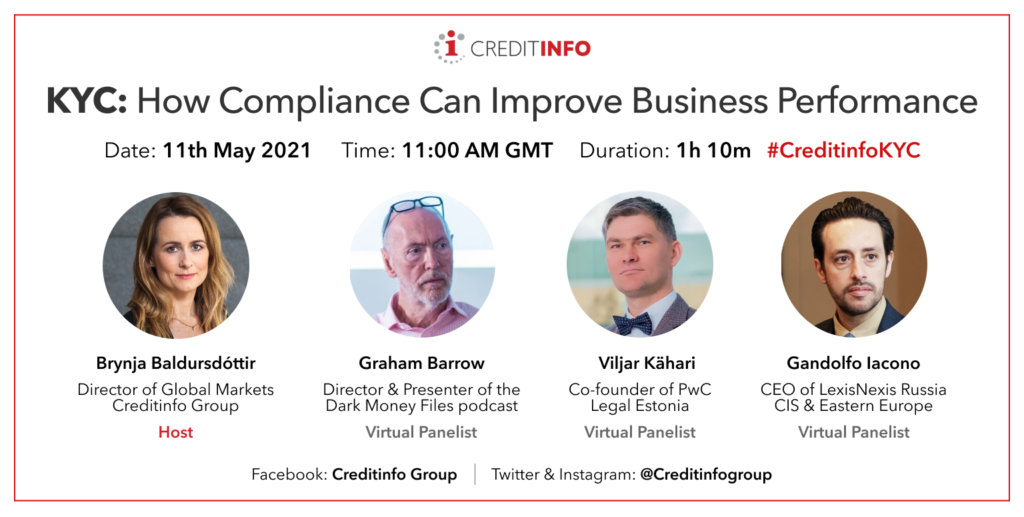
For many, due diligence checks and Know Your Customer (KYC) processes are simply seen as compliance requirements imposed by regulators that can add friction and cost to their business, but that is a flawed assessment. In fact, KYC has many advantages for business and can act as the differentiator needed for your business to survive and thrive in the increasingly digital, global economy.
In a market full of uncertainty, true understanding is a valuable commodity. Today, many organizations have been forced to re-evaluate what they need to do to ensure not just their longevity, but their continued success. Knowing the pressures that customers and prospects face, being able to support them through their challenges and shield your own business from unnecessary risk is key.
However, there are still too many treating KYC compliance like a tick box exercise, and not the competitive point of difference it can be.
The potential and possibilities that arise from a well-conceived and resourced compliance organization is remarkable. Whether it’s through the use of better data, fusing local data with global intelligence, or understanding the emerging threats from organized, financial criminal groups and working to counter them, good compliance can help businesses avoid the most damaging risks and seize the most lucrative opportunities.
At Creditinfo, we’ve long understood this. Our customers know that the combination of our decision analytics technology and access to a wide range of traditional and alternative data provides them with the tools they need to better understand their customers and take the appropriate steps to capitalize on the opportunities on their doorstep.
These opportunities are only ever going to increase, and those that become complacent on compliance, will begin to fall behind.
Tomorrow, on May 11th, we are hosting a webinar with leading experts on the regulatory environment and financial crime to delve into just this. Our panel of experts will discuss what organizations need to do to de-risk their operations and how they can set themselves up for future success.
This virtual panel will include speakers from PwC, Lexis Nexis, and The Dark Money Files, and will cover compliance technology, regulatory trends, and the ever-evolving threat landscape, to help you understand what you need to do to protect your organization from financial crime, and the opportunities better KYC processes can bring to your business.
To hear more about the benefits better KYC compliance could create for your business, register your attendance today.
You can also follow along on Twitter with the hashtag #CreditinfoKYC.
Assessing credit risk of SME’s and how credit scoring can transform SME’s
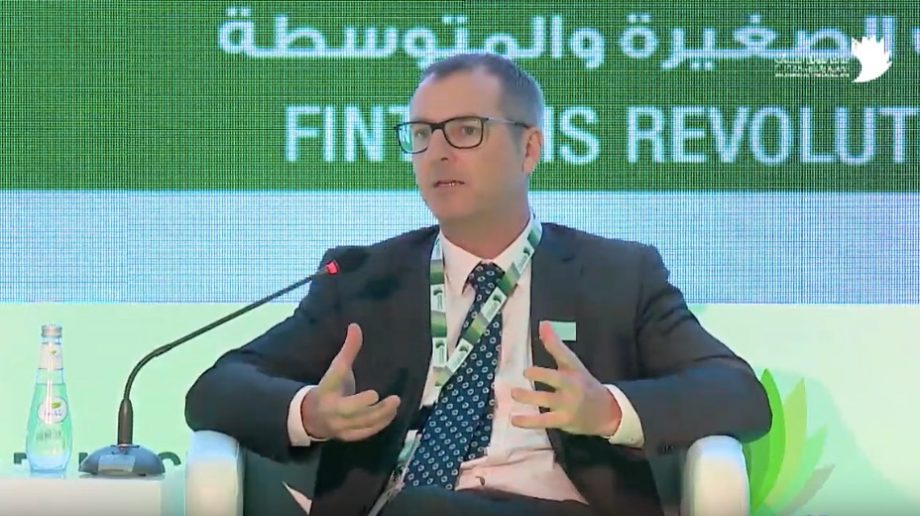
Paul Randall was recently at the Kafalah SME Financing Conference in Riyadh, Saudi Arabia, and he tackled these 2 questions during the panel discussion.
What are the specific challenges of assessing credit risk of SMEs as compared to larger firms and how can fintech can help lenders address those?
Paul Randall at the Kafalah SME Financing Conference 2019
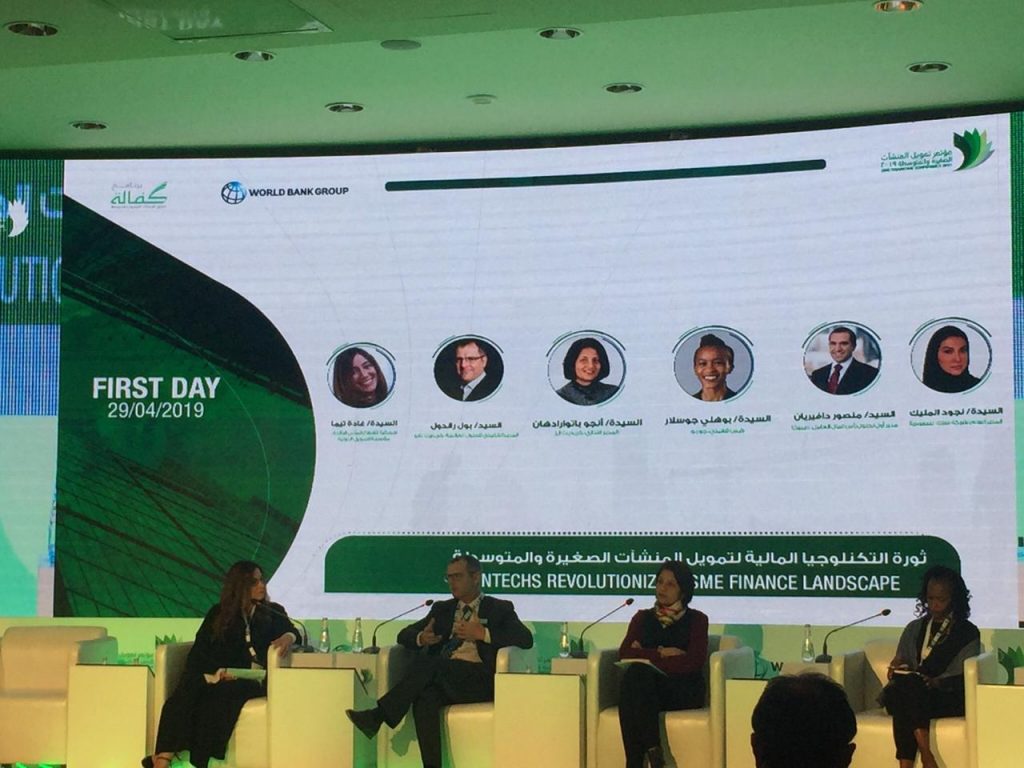
Kafalah SME Financing Conference was held in Riyadh, Saudi Arabia where they discussed current financing for SME’s in Saudi Arabia,how to build relationships between private and public FIs, government agencies and legislative bodies that support financing, current and future finance opportunities for specific business sectors and how to increase awareness of the most current international practices for financing SMEs.
Creditinfo Group awarded the Knowledge Prize 2019
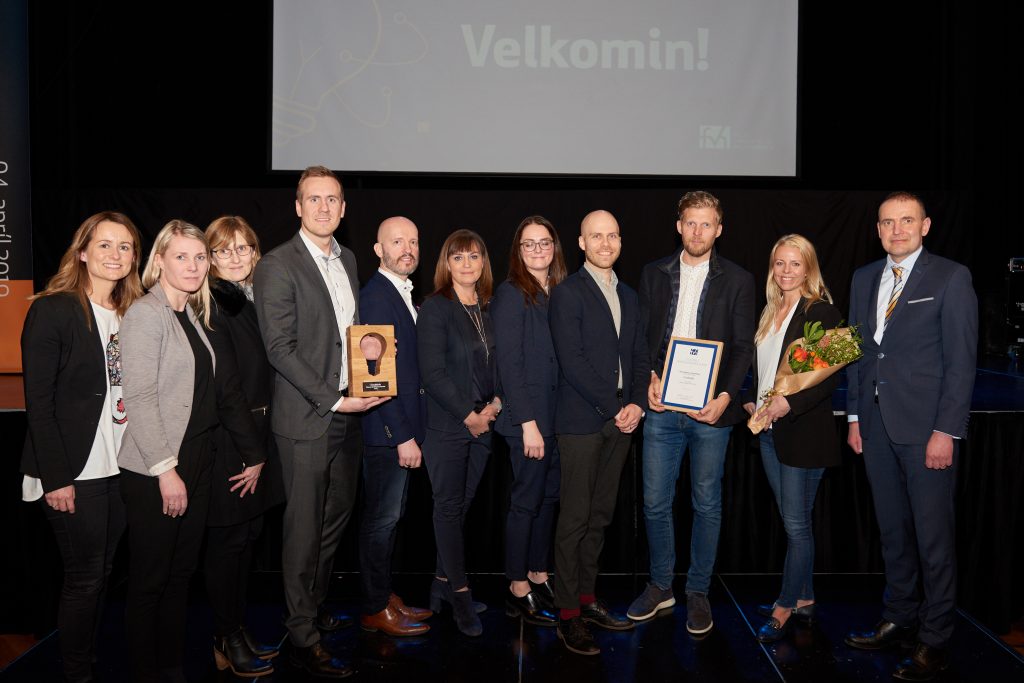
The Association of Business and Economics has chosen Creditinfo as the Knowledge company of the year 2019. Creditinfo Group was chosen as the Knowledge Company of the Year by the Association of Business and Economics. During the selection process, companies that have excelled in their international markets in the recent years were considered. Other companies that also came at the top include CCP, Marel and Nox Medical.
Utilizing subscriber training to inform sales strategy
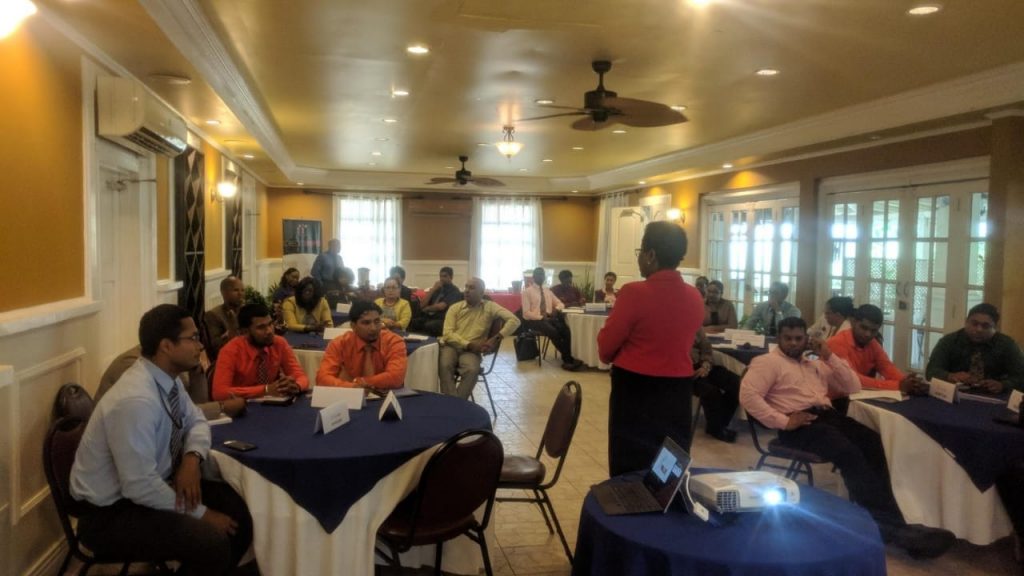
CREDITINFO GUYANA
In an emerging economy where the credit reporting industry is in a fledgling state the requirement for awareness building extends beyond general consumer awareness to educating the community of potential subscribers. Given its experiences in developing the credit reporting market, Creditinfo Guyana has taken the decision that in addition to implementing a general public relations programme to also embark on an extensive ‘training’ programme for current and potential subscribers.
PRESS RELEASE: Know your credit score to make better informed financial decisions

PRESS RELEASE
DPI, Guyana, Thursday, November 22, 2018
– all lending agencies are mandated by law to share all credit data with the credit bureau
– “a lender cannot pull your credit report without your consent”
– know your credit score – it prevents over-indebtedness and encourages responsible borrowing and brings stability to the financial sector
– credit bureau was established in 2013 and operates under the Credit Report Act of 2010 and the Credit Reporting [Amendment] Act of 2016




